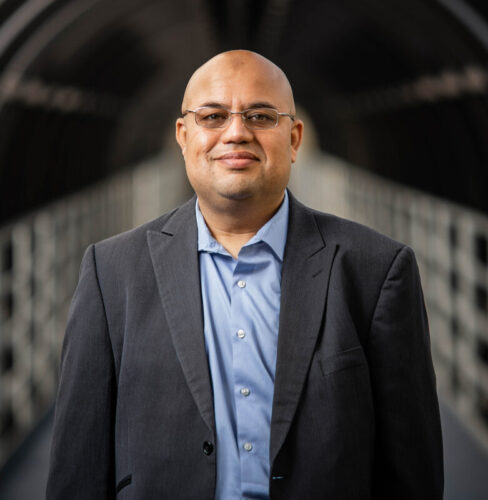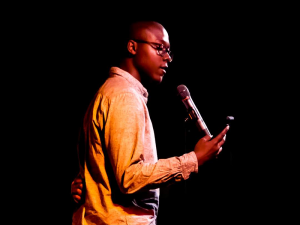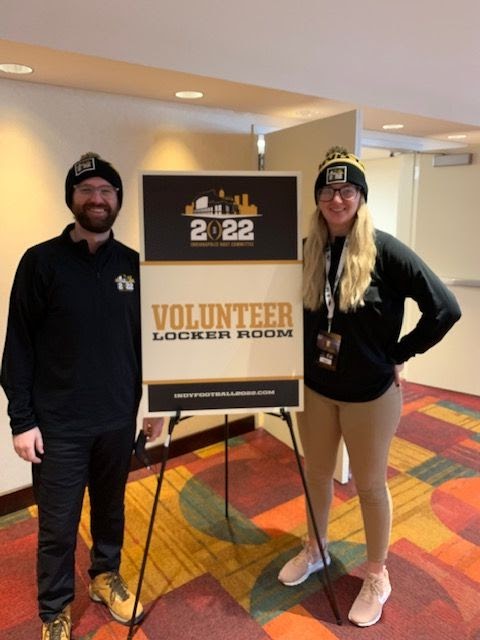Twenty-three years after a career leap of faith, Shariq Siddiqui ’96 is about to embark on his dream job. As the soon-to-be director of the Muslim Philanthropy Initiative at Indiana University’s Lilly Family School of Philanthropy, Siddiqui will be able to work full-time at making the world a better place.
It should be no surprise that Siddiqui was destined for success. His family’s history is traced back to the 13th century. He was told it was his path to be great. Only it was supposed to be as a doctor.
Raised in a proud Muslim family with a lineage of accomplished medical professionals, Siddiqui spent most of his youth in England. He assumed his American experience would be a brief cameo for a college degree. He chose the University of Indianapolis for two simple reasons. One, it was the only school that called him on a weekly basis to secure his admission. Two, a marketing poster with the wrestling coach spoke to him. It became evident very quickly that the University was the right spot for him.
“I knew my faculty and my faculty knew me,” Siddiqui fondly recalls. “Once I discovered I could make something happen, I was pushing myself and they were there helping me. I had the ability to make things happen.”
Armed with the confidence of self-discovery and a deep desire to live a life of service, Siddiqui had to leave the family business behind. His parents gave him a year to prove he could do it. More than 20 years later, Siddiqui hasn’t left America, or Indiana. Much of that is due to the community of support that the University of Indianapolis provided him, recognizing the passion he had and the good that could be done.
Lynn Youngblood, former executive vice president and provost for the University, recalled Siddiqui as an accomplished representative of the University’s growing multicultural student body.
“Shariq was a great ambassador who enlightened all of us. He just had an unbridled enthusiasm for life. He’s a perfect example of what it means to provide service to our community,” Youngblood said.
Siddiqui’s first internship came thanks to a phone call from then-University President Ben Lantz. A grant from the University helped Siddiqui launch the Jefferson Institute, a mentoring program between the University and Northwest High School, with classmate Shawn Denney ’96 (political science) ’13 (MAT). It was the first of many public endeavors for good. He would go on to earn a law degree, a master’s and doctorate in philanthropy, create the Center on Muslim Philanthropy and hold many positions in the nonprofit community.
“The public definition [of philanthropy] is ‘voluntary action for public good,’ but I think it’s too restrictive, especially as a Muslim, so I think of it as intentional approaches to doing good,” Siddiqui says. “[Western] philanthropy is good at making and managing money and finding the right people to trust to give it to. The shift we have to make is for these great foundations to find the right social activists.”
A man of deep religious faith, Siddiqui sees a broken world as it relates to Muslim philanthropy. The religion, in its founding principles, is rooted in social faith and social justice. He quickly cites that while Muslims make up less than one percent of the American population, more money is spent promoting Islamophobia in this country than Muslims are giving to worthy causes. Muslims, he said, are seeking a place and purpose as a community under attack and still assimilating from different cultures scattered around the globe.
“Social problems require finding the right person with the right heart and the right mind and then empowering them, and trusting them to make a difference in the world. That’s what we have to do,” he said.
Now, thanks to his upcoming position at the Lilly Family School of Philanthropy, the mission he discovered at the University of Indianapolis has a chance to make its biggest impact yet.
“I am going to learn how to inspire people to be more innovative in how they give,” Siddiqui says of his new role. “As a Muslim, this is what I’ve been told. The moment I see a problem and then I make a decision to do something about it, God has given me a reward. All of this is about God’s love. The moment God has rewarded you, you’ve already been successful, but then you have to go out and do the action. Whether you succeed or not is a bonus.”





